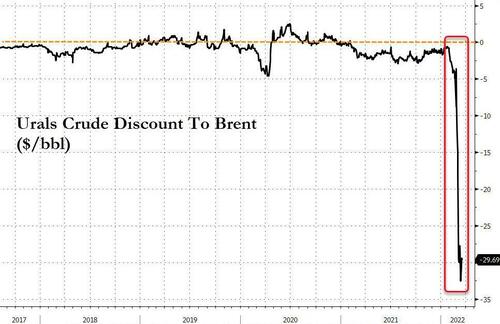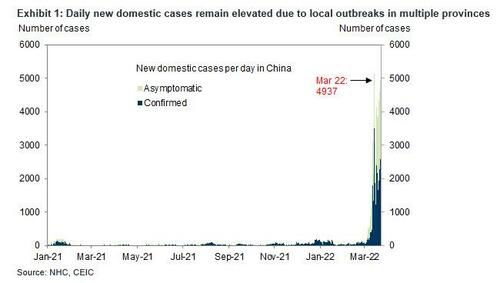If Ukraine rejects a deal, there could be much worse to come
by Lieutenant-General Jonathon Riley in TCW Defending Freedom,
IN my last article in TCW I suggested that Russia was positioning itself for peace negotiations and set out, given what they now held, what the terms might be. Putin’s pitch to President Erdogan of Turkey came soon after and it was very much as I had set out. Today there are signals from the negotiations that a deal is ‘close’. To recap, this would hinge on Russia gaining the Donbas, perhaps after a referendum and no guesses as to how that would go; Crimea and its water supply; a corridor to the Crimea, either by annexation of territory on the coasts of the Sea of Azov and the Black Sea or else as a concession like that to Kaliningrad on the Baltic; and Ukraine giving up all ideas of membership of Nato, and also possibly the EU if the EU could afford them. Putin appears not to want to occupy the rest of Ukraine – apart from anything else, he does not have half a million troops to garrison it, even if he could pay them after the effects of western sanctions have bled him.
What would Ukraine get in return for such huge concessions? No further (substantial) damage to Kiev and no encroachment on the port of Odessa on the Black Sea for sure; guarantees of security for what they would be worth; and presumably the safety of President Zelensky and his family. This would leave Ukraine free, but without most of its industrial infrastructure and its resources of minerals and gas, dependent on agricultural exports and lower living standards for Ukrainians. There might have to be some sort of Marshall Aid plan for Ukraine, with Russia making a contribution, or else a deal like this is unlikely to bring an end to Western sanctions on Russia and so even as Putin declares victory at home, the squeeze on ordinary Russians will get ever worse.
Historic roots of the Donbass problem explained
from RT, 24 March 2022The region has a distinct identity and doesn’t fit neatly into either Russia or Ukraine

Current events have brought a renewed focus on the Donbass, a historical region on the border of Ukraine and Russia. By the standards of history, this area has emerged quite recently, and has always stood a little apart. It’s important to understand its evolution when viewing this crisis, which began in 2014.
Today, Donbass is an industrial and mining region, but for a long time it was largely uninhabited. The steppe zone that ran along the southern borders of medieval ‘Rus’ (not yet divided into Russia, Ukraine, and Belarus) was called the ‘Wild Fields.’ It was home to nomadic peoples and farmers only moved south with great difficulty. After the Mongol invasion in the 13th century, the Wild Fields was a dangerous place to find yourself.
Around four hundred years, a few peasants from Russia and Ukraine began to gradually settle in the future Donbass.
A great leap forward came in the 19th century when the coal deposits discovered there became necessary for industry. It was then that many of the cities without which it is impossible to imagine today’s Donbass were founded. In 1869, the British industrialist John Hughes built a factory around which the village of Yuzovka grew – it had a few more names, including Stalino, before a local man renamed it Donetsk, in 1961As Energy System Comes Apart, Germany Now Preparing Emergency Natural Gas Rationing Plans
from Watts Up With That, 24 March 2022
By P Gosselin on 22. March 2022
Germany is saying “auf Wiedersehen” to plentiful and cheap energies and welcoming tight supplies and rationing. Unless they radically change course, German policymakers will soon be closing the remaining nuclear power plants by the end of the year and coal-fired power plants will be phased out over the coming 15 years.
To make matters worse, European policymakers are moving to phase out fossil fuel powered cars and to replace them with e-vehicles, thus leading to skyrocketing electricity demand precisely when supply is being choked off. Experts warn of blackouts and hyperinflationary energy prices. Moreover, Europe is moving to profoundly restrict its supply of natural gas from Russia.
All these measures taken together are certain to lead to unprecedented energy shortages over the coming years. Therefore, it’s little wonder the government is now scrambling to make plans to ration natural gas when the disastrous shortages arrive. “The government is having a contingency plan drawn up to determine which companies should first stop receiving gas when Russian natural gas fails to arrive,” reports Blackout News.de here. “A corresponding emergency plan is being prepared under the auspices of the Federal Network Agency.” Continue reading >>>
[Daily Stirrer] ... [ Our Page on on Substack ]... [Boggart Aboad] ... [ Greenteeth Home ] ... [ Greenteeth on Minds.com ] ... [ Here Come The Russians ] ... [ Latest Posts ]
China Quietly Buying Russian Oil As Kazakhstan Says CPC Terminal Halt To Last
from Zero Hedge, 24 March 2022
Days after we reported that India stubbornly refused to yield to western pressure and continued to buy cheap Russian crude oil at a discount of around $30 to dated brent...
... today Bloomberg reports what we have known all along, namely that China’s oil refiners are "discreetly" purchasing cheap Russian crude as the nation’s supply continues to seep into the market.
However, unlike India’s state-run oil refiners, which have issued a number of tenders seeking to buy Russia’s flagship Urals crude among other grades, traders say China’s state processors are negotiating privately under the radar with sellers so as not to make their support for the Putin regime too glaring in light of Western opposition.
At the same time, China’s worst virus outbreak since the start of the pandemic has led to some oil refiners cutting back operations and is forcing analysts to rethink their demand estimates.
So on one hand, the Covid-19 resurgence is posing a threat to global oil consumption and may accelerate demand destruction, helping to rein in bloated prices that soared on Russia’s war in Ukraine, but on the other it seems the world is about to be hit with another lengthy disruption.
Continue reading >>>[Daily Stirrer] ... [ Our Page on on Substack ]... [Boggart Aboad] ... [ Greenteeth Home ] ... [ Greenteeth on Minds.com ] ... [ Here Come The Russians ] ... [ Latest Posts ]
Sharron Davies threatened after criticising Lia Thomas competing in women's sport
James Micklethwaite, GB News, 24 March 2022
The former Olympic swimmer waded into the row on Lia Thomas, who was born a man, competing in women's swimming
Sharron Davies MBE revealed she has been threatened over her views on transgender women competing in women's sport.
Swimmer Lia Thomas sparked huge debate around the subject when she became the first transgender woman to win an NCAA swimming title.
Debate raged around whether Lia should be able to compete in the women's division after transitioning from a male.
Labour MP Charlotte Nichols congratulated Lia on her achievement, branding any criticism as "lazy transphobia".
But Olympic silver medallist Ms Davies argued that it was unfair for women for Lia to be competing against them.

Since airing her views, Ms Davies revealed on Twitter she had received "several threats".
She wrote: "I’ve received several threats to myself and my work because I present evidence based facts on the unfairness of male inclusion in women’s sport.
"Which is biological sex based decriminalisation. I will not stop bringing these actual facts into the light or be bullied into silence.
"I’m used to it now. But I feel we are turning the corner and open debate to find science based solutions are not far away that will protect the integrity and rights of females in sport as well as offering up ways to be inclusive but not as the cost of another groups rights."

Thomas' victory came after a civil rights complaint was submitted against the University of Pennsylvania for permitting her to compete on its swimming team.
Also brought up was Lia's ranking of 462nd when she competed in the male ranks.
[Daily Stirrer] ... [ Our Page on on Substack ]... [Boggart Aboad] ... [ Greenteeth Home ] ... [ Greenteeth on Minds.com ] ... [ Here Come The Russians ] ... [ Latest Posts ]
Government of Canada data shows the Triple Vaccinated are over 5x more likely to die of Covid-19 than the Unvaccinated
The Daily Expose, 24 March 2022
The Government of Canada recently started to include the triple vaccinated in their weekly data on Covid-19 deaths by vaccination status. But unfortunately for those who have succumbed to three doses of a Covid-19 injection, that data shows they are over 5 times more likely to die of Covid-19 than the unvaccinated population.

The Canadian Covid-19 figures are produced by the Government of Canada (see here).
Their latest data is available as a downloadable pdf here.
Here are the tables from the January 30th, February 6th, February 13th, February 20th, and February 27th, Government of Canada Covid-19 Daily Epidemiology Update’ reports showing the number of cases, hospitalisations and deaths by vaccination status from as far back as 14th December 2020, as well as the total population sizes of each vaccine group at the time of each report –

 Dr. Atlas addressed top activists in the state before speaking with students at Michigan State University.
Dr. Atlas addressed top activists in the state before speaking with students at Michigan State University.


Andrew Orlowski